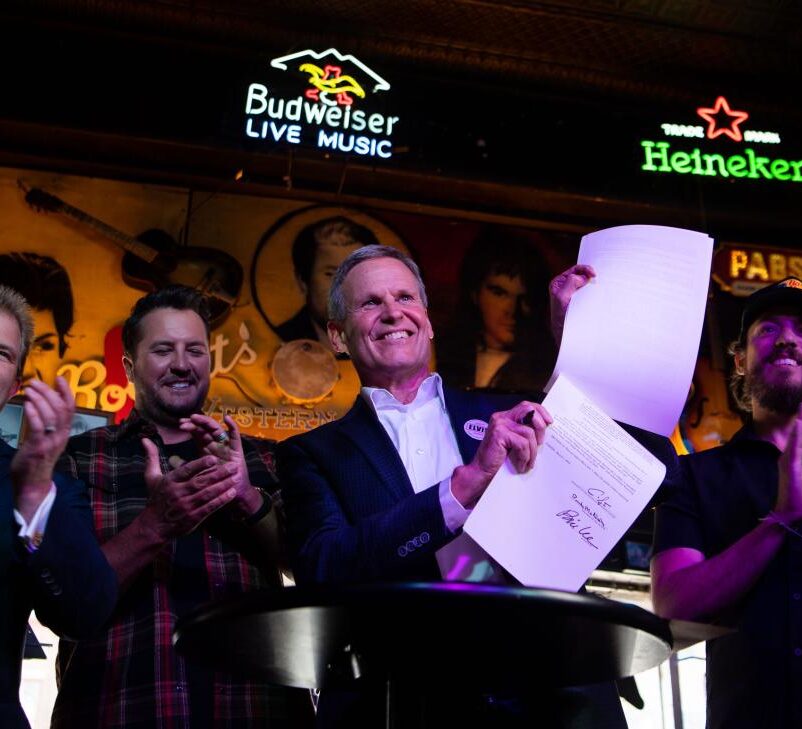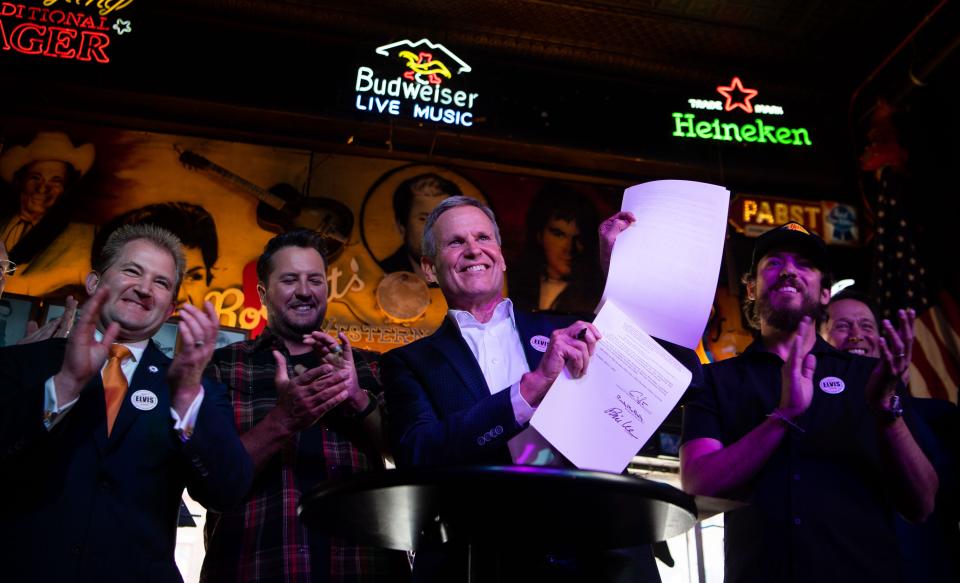
It’s been said that artificial intelligence (AI) brings great opportunities, but also great risks. Both have been on display in recent months.
With the development of generative AI, online creators everywhere have gained access to cutting-edge creative tools unmatched by any prior technology.
But at the same time, the problem of AI deepfakes exploded.
Falsified health care information jeopardizing public well-being. Misinformation and conspiracy theories risking unnecessary military conflict. Deepfake pornographic images of high school girls. Political and other public figures misportrayed, espousing hateful or contrary views that effect elections, brands and personal reputations.
More: TN Gov. Lee signs ELVIS Act into law in honky-tonk, protects musicians from AI abuses
How the music community came together to create change on AI
According to the U.S. Government Accountability Office (GAO), “A deepfake is a video, photo, or audio recording that seems real but has been manipulated with AI. The underlying technology can replace faces, manipulate facial expressions, synthesize faces, and synthesize speech. Deepfakes can depict someone appearing to say or do something that they in fact never said or did.”


With their life’s work copied and scraped off the internet to power unauthorized AI voice clones and digital replicas, recording artists’ careers and reputations are also at risk.
This is significant to Tennessee where music injects some $5.8 billion into the state’s GDP and supports 61,000 jobs, according to Economists, Inc.
Recognizing the urgent need to act, policymakers began developing legislative proposals to stop this abuse. Creators, AI experts, developers, civil rights organizations, labor unions, and dozens of other stakeholder groups engaged in a far-reaching public debate – weighing the pros and cons of different approaches to the fast-moving problem.
The music community helped organize and launch the Human Artistry Campaign, now 180 creative community members from 34 countries worldwide, fighting for the effective and responsible use of AI to expand human creativity and possibility.
Several bills have been introduced in state legislatures around the country. The U.S. Congress is also examining proposals and held a powerful field hearing in Los Angeles featuring academics, experts, and CMA Entertainer of the Year Lainey Wilson (who went on to win a Grammy for Country Album of the Year a couple of days later).


Wilson’s testimony brought the problem alive for the Members of Congress in attendance, explaining what “a gut punch it is to have your name, your likeness or your voice ripped from you and used in ways that you could never imagine or would never allow.”
More: What is propaganda? What’s a deep fake? And can they influence elections?
Here’s how ELVIS Act works and what’s coming next
And now the first of these proposals has become law – Tennessee’s landmark “ELVIS (Ensuring Likeness, Voice and Image Security) Act,” giving every person a protected property right in their own voice and likeness and creating clear remedies against makers of digital replicas and voice clone tools that invade those rights without consent.
The bill ensures that protected films, TV shows, and news reporting can still be freely made – expressing “crystal clear intent” to address only “simulated voices and images” doing things “the subject never actually said or did.”
Tennesseans should be proud of their state’s leadership. Their extraordinary bipartisan process saw a 93-0 vote in the House of Representatives and a 30-0 vote in the Senate. That’s how we would all hope for the government to respond to abuses like this, and Gov. Lee and leaders Lamberth and Johnson deserve a lot of credit for working together and across the aisle to get this done.
Tennessee is just one state and others are moving ahead as well. The thoughtful, bipartisan spirit that produced this great victory for every person’s right to their own identity is equally on display in the U.S. Congress where Sens. Chris Coons, D-Delaware, and Marsha Blackburn’s, R-Tennessee, NO FAKES Act proposal and Reps. Maria Salazar, R-Florida, and Madeleine Dean’s, D-Pennsylvania, No AI FRAUD Act have brought Democrats and Republicans together to work towards a national baseline set of standards to address unauthorized digital replicas and voice clones.


We should all take heart and stop to celebrate the way our political system has met the moment – rising to the challenge of generative AI deepfakes in an urgent, thoughtful, and bipartisan way.
Mitch Glazier is chairman and CEO of Recording Industry Association of America.
This article originally appeared on Nashville Tennessean: ELVIS Act showed how Tennessee led the nation in bipartisan way on AI


